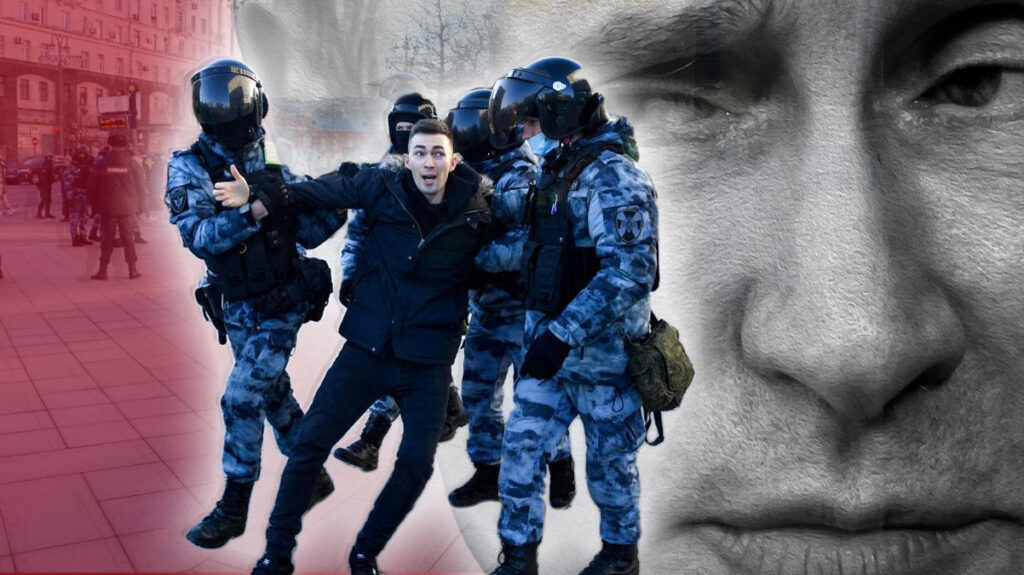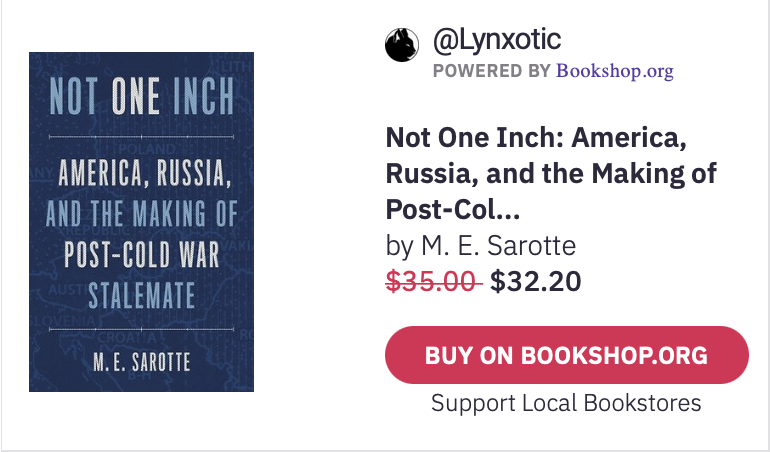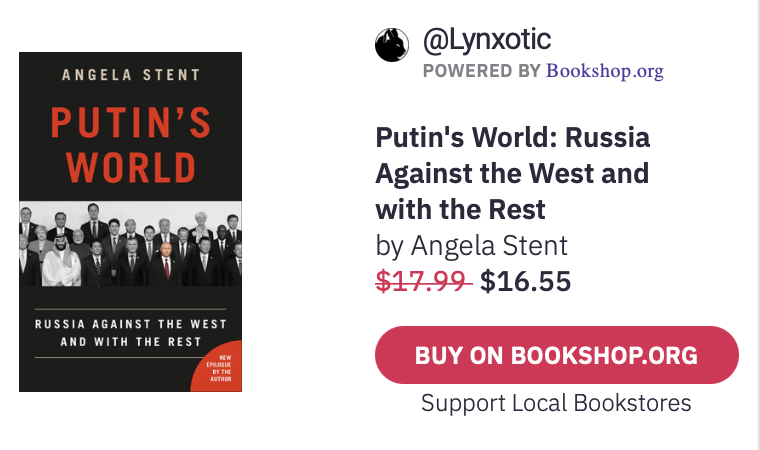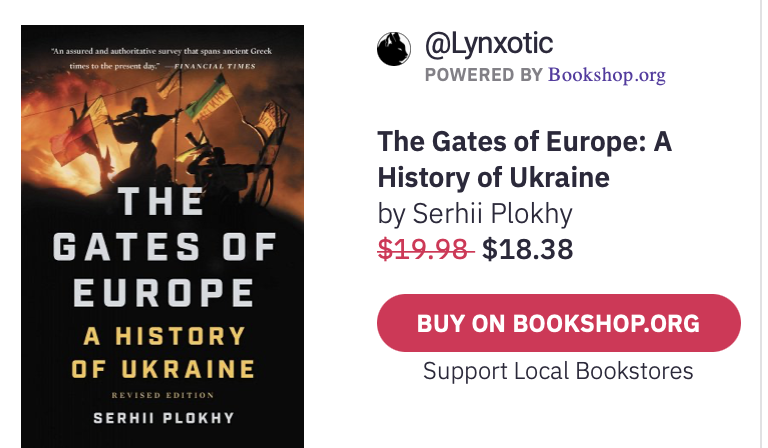News
Economic sanctions may deal fatal blow to Russia’s already-weakdomestic opposition
Published
2 years agoon
The West has responded to Russia’s invasion of Ukraine by imposing harsh economic sanctions.

Above: Photo Collage
Most consequentially, key Russian banks have been cut out of the SWIFT payments messaging system, making financial transactions much more difficult. The United States, European Union and others also moved to freeze Russian Central Bank reserves. And U.S. President Joe Biden is weighing a total ban on Russian oil imports.
These sanctions are aimed at generating opposition from both Russian President Vladimir Putin’s inner circle and everyday Russians. As a scholar who studies regime change, I believe the risk is that they will actually drive the Kremlin’s weak opposition further into obscurity.
A ‘punishment logic’
Economic sanctions follow a “punishment logic”: Those feeling economic pain are expected to rise up against their political leaders and demand a change in policies.
Everyday Russians have already felt the pain from the newest sanctions. The ruble plummeted in value, and Russia’s stock market dipped. The effects of Western sanctions were seen in the long lines at ATMs as Russians tried to pull out their cash before it was lost.
But the odds of an uprising are not great. Empirical research suggests that sanctions rarely generate the sorts of damage that compel their targets to back down. Their greatest chance of success is when they are used against democratic states, where opposition elites can mobilize the public against them.
In authoritarian regimes like Putin’s, where average citizens are the most likely to suffer, sanctions usually do more to hurt the opposition than help it.
How Putin has quelled dissent
Putin has used a variety of tools to try to quell domestic opposition over the past two decades.
Some of these were subtle, such as tweaking the electoral system in ways that benefit his party. Others were less so, including instituting constitutional changes that allow him to serve as president for years to come.
But Putin has not stopped at legislative measures. He has long been accused of murdering rivals, both at home and abroad. Most recently, Putin has criminalized organizations tied to the opposition and has imprisoned their leader, Alexei Navalny, who was the target of two assassination attempts.
Despite a clampdown on activism, Russians have repeatedly proved willing to take to the streets to make their voices heard. Thousands demonstrated in the summer and fall of 2020 to support a governor in the Far East who had beaten Putin’s pick for the position only to be arrested, ostensibly for a murder a decade and a half earlier. Thousands more came out last spring to protest against Navalny’s detention.
Putin has even begun facing challenges from traditionally subservient political parties, such as the Communist Party and the nationalist Liberal Democratic Party.
Flickers of opposition
Importantly, Putin has occasionally shown a willingness to back down and change his policies under pressure. In other words, as much as Putin has limited democracy in Russia, opposition has continued to bubble up.
The result is a president who feels compelled to win over at least a portion of his domestic audience. This was clear in the impassioned address Putin made to the nation setting the stage for war. The fiery hourlong speech falsely accused Ukrainians of genocide against ethnic Russians in eastern Ukraine. “How long can this tragedy continue? How much longer can we put up with this?” Putin asked his nation.
Since Russia invaded Ukraine, Russians have continued to show their willingness to stand up to Putin. Thousands have gathered to protest the war in Ukraine, despite risking large fines and jail time.
They have been aided by a network of “hacktivists” outside Russia using a variety of tactics to overcome the Kremlin’s mighty propaganda machine. These groups have blocked Russian government agencies and state news outlets from spreading false narratives.
Controlling the narrative
Despite these public showings, the liberal opposition to Putin is undoubtedly weak. In part, this is because Putin controls state television, which nearly two-thirds of Russians watch for their daily news. Going into this war, half of Russians blamed the U.S. and NATO for the increase in tensions, with only 4% holding Russia responsible.
This narrative could be challenged by the large number of Russians – 40% – who get their information from social media. But the Kremlin has a long track record of operating in this space, intimidating tech companies and spreading false stories that back the government line. Just on Friday state authorities said they would block access to Facebook, which around 9% of Russians use.
Putin has already shown he can use his information machine to convert past Western sanctions into advantage. After the West sanctioned Russia for its 2014 takeover of Crimea, Putin deflected blame for Russians’ economic pain from himself to foreign powers. The result may have fallen short of the classic “rally around the flag” phenomenon, but on balance Putin gained politically from his first grab on Ukraine. More forceful economic sanctions this time around may unleash a broader wave of nationalism.
More importantly, sanctions have a long track record of weakening political freedoms in the target state. As the situation in Russia continues to deteriorate, Putin will likely crack down further to stamp out any signs of dissent.
And former Russian president Dmitry Medvedev reacted to the country’s expulsion from the Council of Europe by suggesting Russia might go back on its human rights promises.
Another casualty of the war
This has already begun.
In the first week of the war, Russian authorities arrested more than 7,000 protesters. They ramped up censorship and closed down a longtime icon of liberal media, the Ekho Moskvy radio station. The editor of Russia’s last independent TV station, TV Dozhd, also announced he was fleeing the country.
Russia already ranked near the bottom – 150 out of 180 – in the latest Reporters Without Borders assessment of media freedom. And a new law, passed on March 4, 2022, punishes the spread of “false information” about Russia’s armed forces with up to 15 years in jail.
Ironically, then, the very sanctions that encourage Russians to attack the regime also narrow their available opportunities to do so.
Ultimately, the opposition seen on the streets in Russia today and perhaps in the coming weeks may be the greatest show of strength that can be expected in the near future.
The West may have better luck using targeted sanctions against those in Putin’s inner circle, including Russia’s infamous oligarchs. But with their assets hidden in various pots around the world, severely hurting these actors may prove difficult.
Even in the best of circumstances, economic sanctions can take years to have their desired effect. For Ukrainians, fighting a brutal and one-sided war, the sanctions are unlikely to help beyond bolstering morale.
The danger is that these sanctions may also make average Russians another casualty in Putin’s war.
[The Conversation’s Politics + Society editors pick need-to-know stories. Sign up for Politics Weekly.]
This article is republished from The Conversation BY Brian Grodsky, University of Maryland, Baltimore County under a Creative Commons license. Read the original article.
Related Articles:
- Is 2023 the year for Virtual Reality Workouts?
- Fitness with Apple Watch: A Day in the Life of Highly Motivated Ring Closers
- Goodbye Twitter, Hello Mastodon!
- The Vision of Steve Jobs for the Future of Apple has Barely Begun to Emerge
- Is This Jason Statham Video Real or Deepfake TikTok Account? You Decide
Enjoy Lynxotic at Google News and Apple News on your iPhone, iPad or Mac.
Find books on Russia and Putin and many other topics at our sister site: Cherrybooks on Bookshop.org
Lynxotic may receive a small commission based on any purchases made by following links from this page





